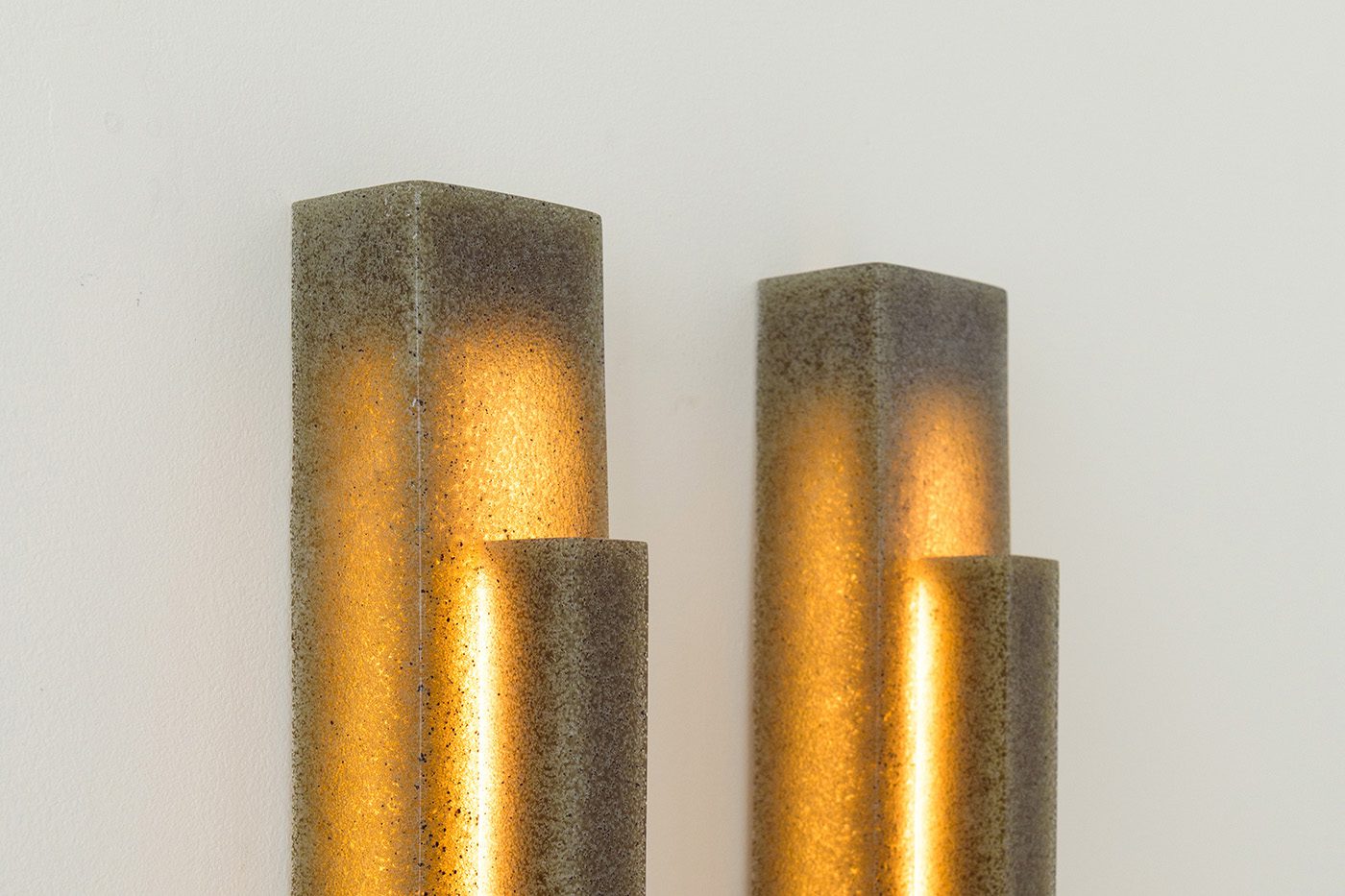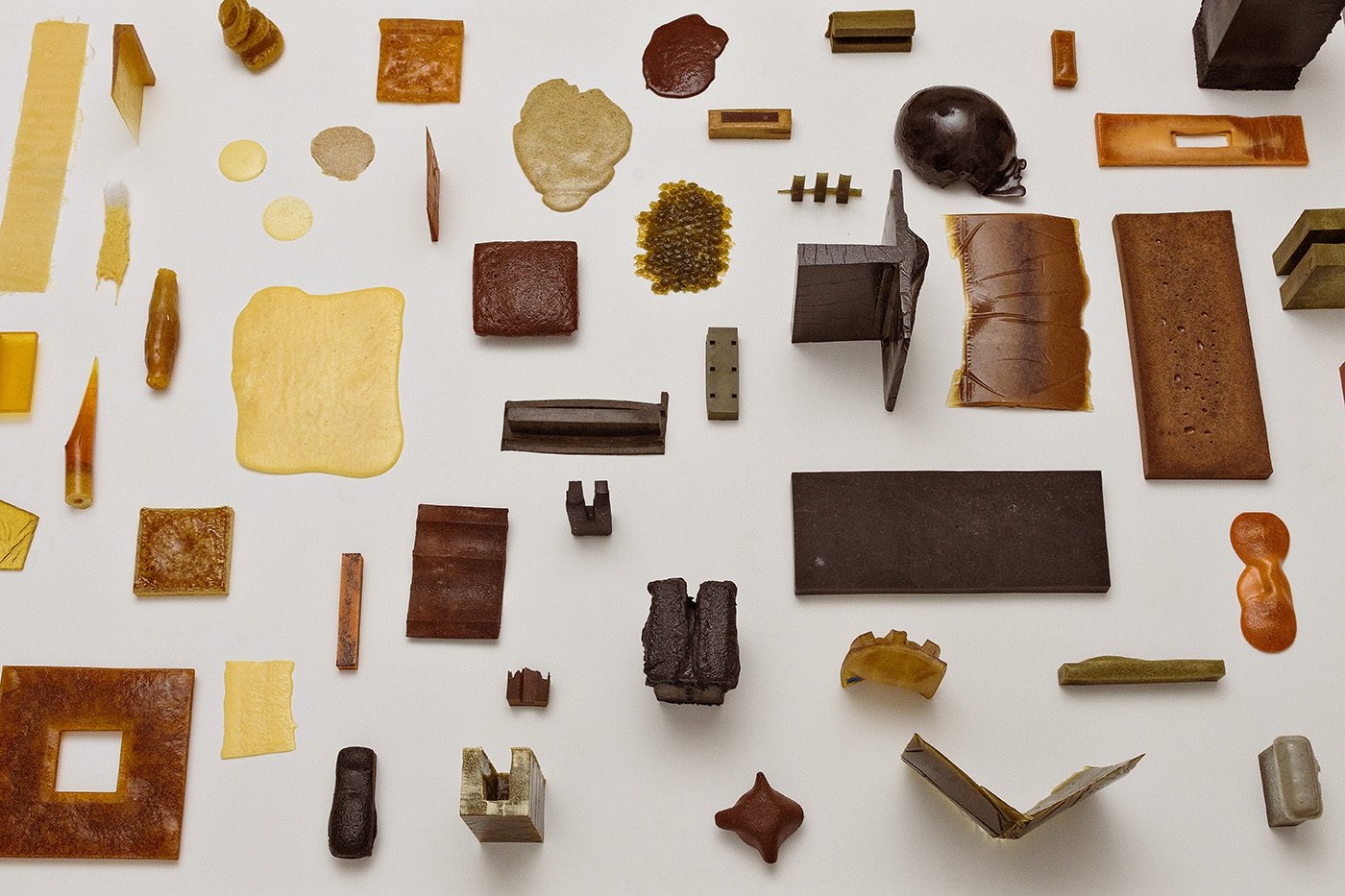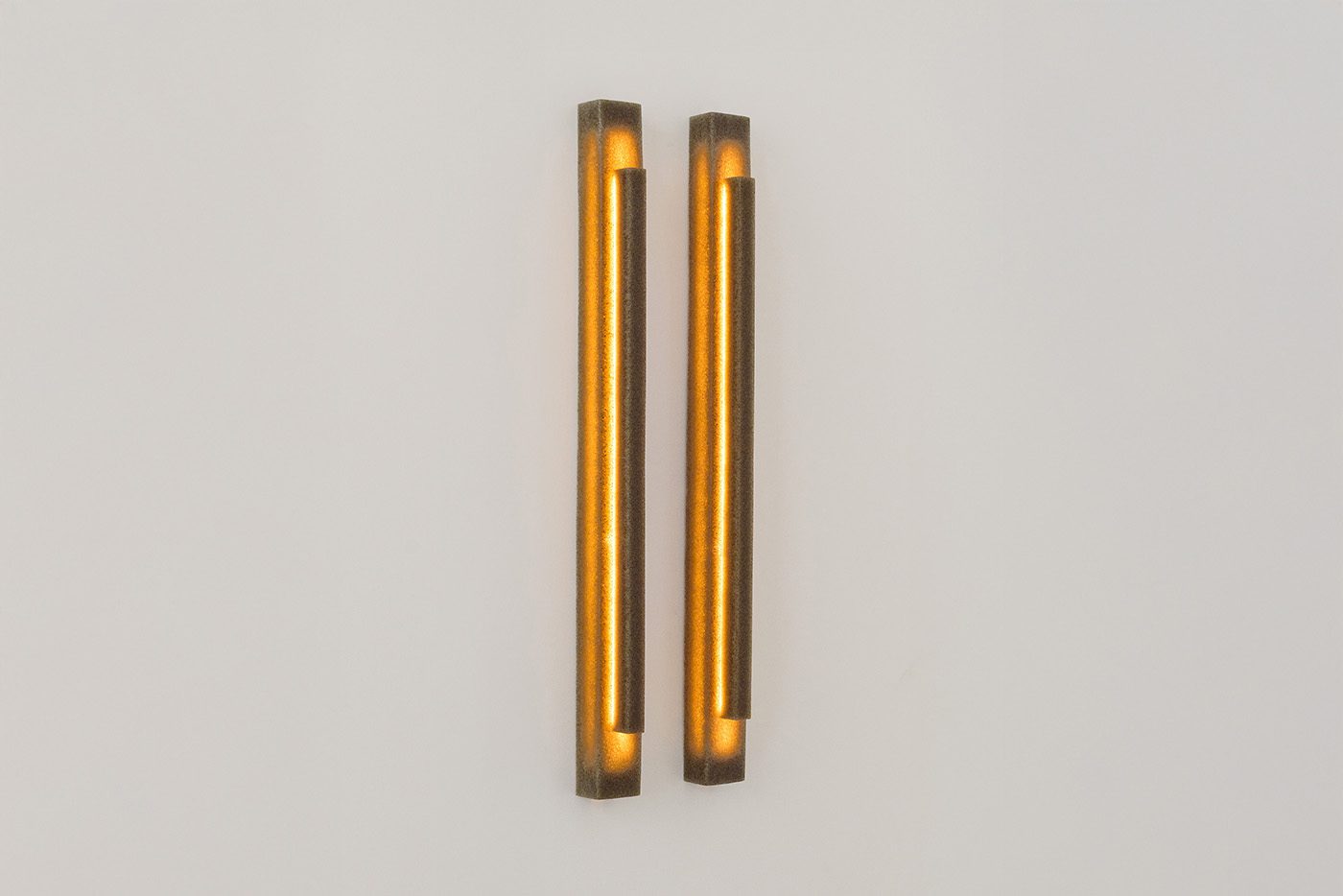Project implementation: Brazil
Project development: Brazil
Interest in new materials has guided the research and practice of Estúdio RAIN, which since 2019 has been dedicated to researching plant resin derived from castor oil.
Initially, the studio focused on experimenting with the biomaterial, seeking to expand its use beyond its traditional application as a thin-layer varnish. The goal was to enable the molding of large volumes of the material. This phase resulted in amber-toned light filters—the resin's natural color. Subsequently, the material's purity was challenged by the introduction of air during the curing process. The increased bubble content gave the resin a whitish, translucent appearance, enabling the development of organically shaped foam membranes used as light diffusers.
The Rícino C series represents a third advancement in this research. In it, plant-based polymers are combined with natural aggregates to create composite materials. Organic and mineral elements—such as flowers, fruits, roots, algae, seeds, and rocks—are incorporated into the resin, resulting in surfaces with different textures, densities, and hues, which can be applied to various functions.
Amidst this plurality, the presence of the granule is the unifying factor. It concentrates the material's intrinsic information, defining its visual and technical characteristics. The granule, however, does not exist in isolation: its essence manifests itself in accumulation—whether by dispersing and coloring the resin, or by sedimenting and conferring hardness and opacity.
Exploring new possibilities, a collection of orthogonal lines was created that highlight the material's enigmatic character. Robust and silent, almost monolithic volumes are articulated through visible joints, revealing connections. The Rícino C series expresses the organic nature of the plant-based polymer and its capacity for transformation, highlighting the material's versatility and beauty.




